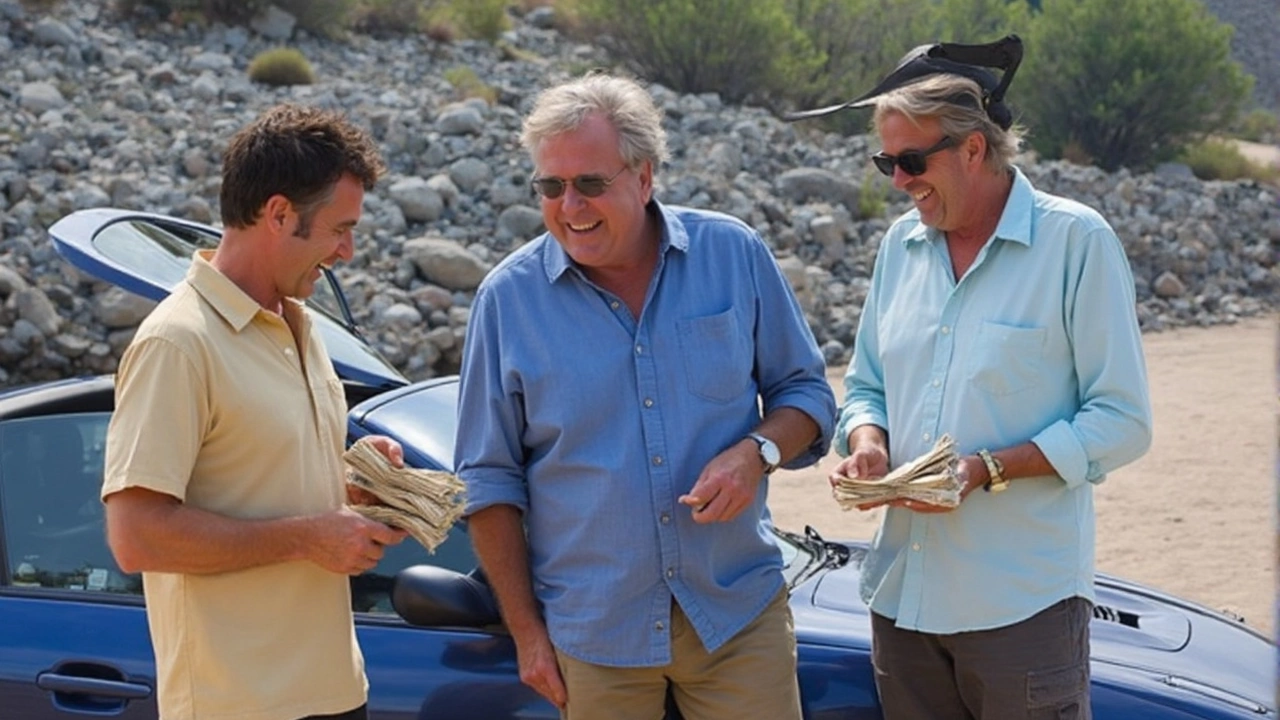The Real Story Behind Jeremy Clarkson’s Massive Net Worth
Everyone knows Jeremy Clarkson as the sharp-tongued host from Top Gear and The Grand Tour, but here’s something most people don’t realize: underneath the jokes and car crashes sits a jaw-dropping £55 million fortune. His financial empire wasn’t built overnight—it’s the result of some seriously lucrative TV contracts, risk-taking, and diversifying far beyond motoring TV.
Let’s start with the big money-maker: Amazon’s The Grand Tour. Clarkson’s reported contract is the kind most of us only dream about—£160 million signed with Amazon Prime Video to reunite with Richard Hammond and James May. Rolling that up, sources put Clarkson’s take-home at £10–£15 million each year from a combo of hosting fees, production revenues, and spin-offs. Even without knowing the exact numbers behind closed doors, these figures make it clear why Jeremy Clarkson regularly lands on lists of the UK’s top-earning TV personalities.
But his time at the BBC was hardly quiet. Back during the Top Gear heyday, Clarkson tapped into the success through a company called Bedder 6. While the name sounds like a mysterious Bond gadget, it was simply the setup managing profits from DVDs, merchandise, and global licensing. It’s estimated he saw as much as £10 million a year flowing in, direct from petrolheads around the world obsessively watching and rewatching the antics of the best-known car show ever.
Beyond the Cars: Farm Failures, TV Triumphs, and Side Hustles
Clarkson never stuck to just cars and petrol fumes. His foray into farming has turned him into a kind of accidental hero for British agriculture. Clarkson’s Farm became a surprise hit on streaming, but let’s not sugarcoat it—his Diddly Squat Farm’s first year ended up with only £144 in profit, a total that’s almost comic when set beside his mansion-sized earnings. But the man knows how to turn a story into a spectacle, and that measly profit wound up fueling jokes, memes, and eventually, even more cash.
The success of Clarkson’s Farm reportedly opened the door to even bigger payouts, with rumors swirling that future deals with Prime Video could hit £200 million. While those figures aren’t confirmed, it’s not hard to imagine streaming services shelling out that kind of money to keep a star with Clarkson’s draw power. After all, he’s not just running a farm for laughs—he’s creating hit TV, launching books, and shifting Diddly Squat-branded honey, gin, and farm gear to fans who lap it up just as eagerly as burnt rubber on a rally stage.
Lest we forget, Clarkson also took the hot seat on Who Wants To Be A Millionaire—keeping him in the public eye and adding yet another revenue stream. Throw in years spent as a newspaper columnist and best-selling author, and it's clear that his wealth isn’t propped up by one big win. The man simply knows how to keep the cash flowing from every possible angle.
The irony? Despite all these side hustles, early losses at his farm made more headlines than some of his TV contracts. But Clarkson isn’t interested in hiding failures—they’re part of the package, woven right into the very content that’s made him a household name. He’s proof that sometimes, stumbling in one business means sprinting even faster in another.
